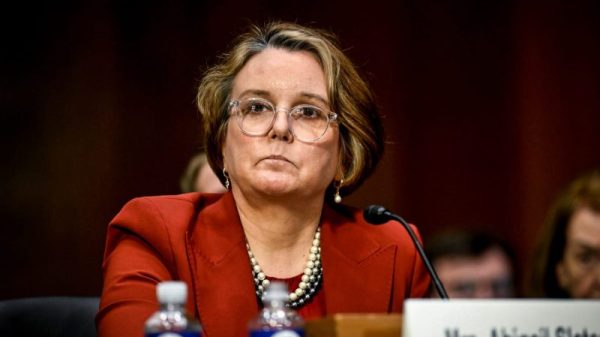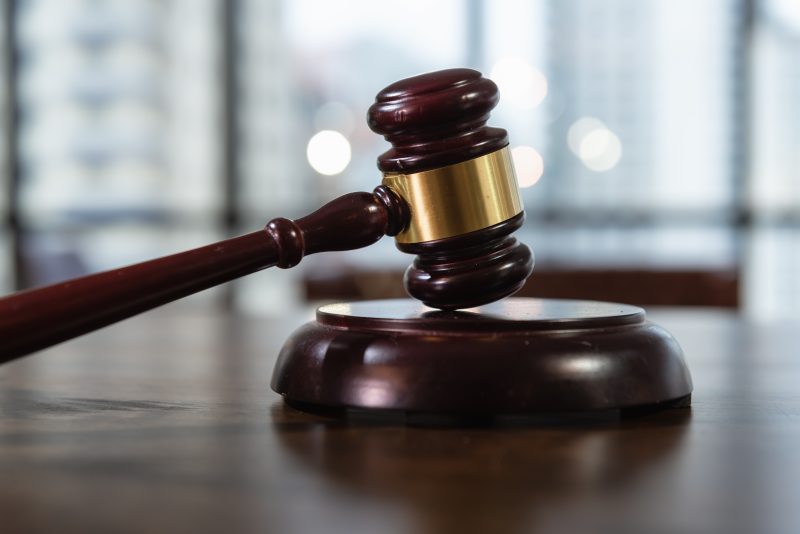Federal judiciary leaders on Tuesday announced a policy that requires assigning judges at random in civil cases that have statewide or national implications, an effort to address widespread concerns about “judge shopping” in single-judge divisions.
The Judicial Conference of the United States, the policymaking body for the federal courts, said district courts may continue to assign cases to a single-judge division if those cases don’t seek to bar or mandate state or federal actions through declaratory judgment or injunctive relief.
When random assignments are required, the case will be assigned to a judge within the same judicial district.
“The random case-assignment policy deters judge-shopping and the assignment of cases based on the perceived merits or abilities of a particular judge,” Judge Robert J. Conrad Jr., secretary of the conference, said in a statement. “It promotes the impartiality of proceedings and bolsters public confidence in the federal Judiciary.”
The issue of “judge shopping” gained national attention after antiabortion activists filed a lawsuit seeking to revoke federal approval of the abortion medication mifepristone in a division with just one judge: Matthew J. Kacsmaryk, known for his long-held antiabortion beliefs.
In Texas, the attorney general’s office and conservative groups also have looked to single-judge divisions as the places to challenge President Biden’s policies on immigration and the environment, among other issues.
The Biden administration and organizations such as the American Bar Association have raised concerns about judge shopping in the past, and Chief Justice John G. Roberts Jr. also highlighted in the issue in his 2021 Year End Report on the Federal Judiciary.
Bruce Green, a professor at Fordham Law School, welcomed the amended policy. “I think that it’s deeply problematic to have a party be able to choose the single judge that they want to preside in the case,” he said. “Adopting a policy that makes that more difficult is a good thing. There’s a reason why courts, in general, have the practice of randomly assigning cases within the court, and this will promote that practice.”
Green said single-judge divisions made geographical sense in some ways when judicial districts are very rural. But, he said, judges can still drive long distances to hear cases in different courthouses when necessary, and also have the option of holding hearings online. “The justification for having a single-judge division may not be that compelling anymore, if it ever was,” he said.
But Josh Blackman, a professor at South Texas College of Law, questioned the Judicial Conference’s authority to create the policy and said the issue should be decided by elected lawmakers. “I think the solutions come from Congress,” Blackman said. “I don’t know that this policymaking body has the authority to do what it did — even if they did, I think it’s better coming from the legislature.”
Judicial Conference officials also said Tuesday that they have not completed their review of Supreme Court Justice Clarence Thomas’s financial reporting practices, nearly one year after Democratic lawmakers accused the justice of violating federal ethics laws by failing to report years of lavish travel and gifts from wealthy friends.
Last April, Sen. Sheldon Whitehouse (D-R.I.) and Rep. Hank Johnson (D-Ga.) asked the conference to investigate what they said was Thomas’s failure to report on his annual disclosure forms his travel and real estate deals with friend and benefactor Harlan Crow.
The lawmakers said the conference, which is overseen by Roberts, should refer the matter to Attorney General Merrick Garland to consider whether Thomas had violated the Ethics in Government Act.
The request was sent to the conference’s Committee on Financial Disclosure for consideration. On Tuesday, after the conference’s semiannual meeting, Judge Jeffrey S. Sutton said the committee is still looking into the allegations from lawmakers.
“That was not discussed by the judges at the conference, and they did not have an action item on the point in front of us so it’s still pending, but it’s in front of them,” said Sutton, chief judge of the U.S. Court of Appeals for the 6th Circuit.
Johnson said in a statement that the conference should move quickly. “Time is of the essence,” Johnson said. “To restore Americans’ trust, the Judicial Conference must act swiftly to show that Supreme Court Justices are not above the law.”
Whitehouse, in his own statement, said he hoped that members of the conference will decide soon how to move forward. “A cloud will hang over the Court as long [as] these questions go unanswered,” he said.





























